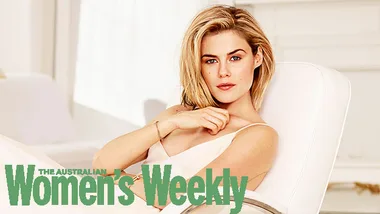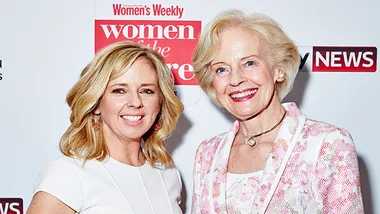Sitting beside a pool in Bali this month, a friend joined me, distressed by what he had just witnessed. As he left his villa, a couple began an argument and, without warning, the man lifted his hand and brutally smashed the woman he was with across the face and nose.
My friend’s response was to feel sickened yet unwilling to intervene in someone else’s “domestic”. It is a common response and, until recently, it was the response of most people, including the police.
These days, we know better, that domestic violence is a vicious crime, with long-term consequences for everyone involved. It is not okay and it is our business because both physical and mental domestic abuse is deplorable.
Yet, each week, one Australian woman dies at the hands of her partner or a former partner.
Rachael Taylor’s first-person account of her own experience with domestic violence in this month’s issue is a powerful reminder that it can happen to anyone. On meeting Rachael in a New York photographic studio on a freezing Sunday morning (above), I was struck by her poise and self-confidence.
It seemed incongruous that someone with Rachael’s background and assertiveness could ever have found herself the victim of anything, let alone the violence of a partner. Yet this is her central message – if it can happen to her, it can happen to you and it is happening to someone you know.
This month’s cover story is a powerful message of support by this magazine and Rachael for the campaign to stop violence against women by White Ribbon.
This tireless organisation works to change the attitudes of men, to encourage more women to speak up if they are in trouble and for all of us to be more conscious and prepared to recognise the signs.
One high-profile woman who has been involved in fighting domestic violence for many years now is Quentin Bryce, Australia’s first female Governor-General, who has also worked tirelessly in the field. Over a cup of tea at Admiralty House last month, she spoke passionately about domestic violence being the number one issue for women in this country.
Ms Bryce, who this month returns to Brisbane after stepping down as our head of state, gave many speeches on the topic, describing it as the “unspoken evil in our midst for too long”.
“Domestic violence is insidious,” she said. “It crosses all socio-economic boundaries. It causes lasting emotional and economic damage, to the victims, to their families and the future of our children. Australia must have a policy of zero tolerance to domestic violence.”
I urge you to read Rachael’s first-hand account of what happened to her. She gives a chilling insight into how she found herself a victim, then, ultimately, a survivor of domestic violence. Her message to any woman in the same situation is that you, too, can be a survivor.
We spent a lot of time talking to Rachael about this cover story and it was a big decision for her to talk about her experience.
I would like to publicly acknowledge her bravery in being prepared to share it. And I would like to make it clear that it was her express wish that we make no mention of the perpetrator. Understandably, she believes this is not about him.



